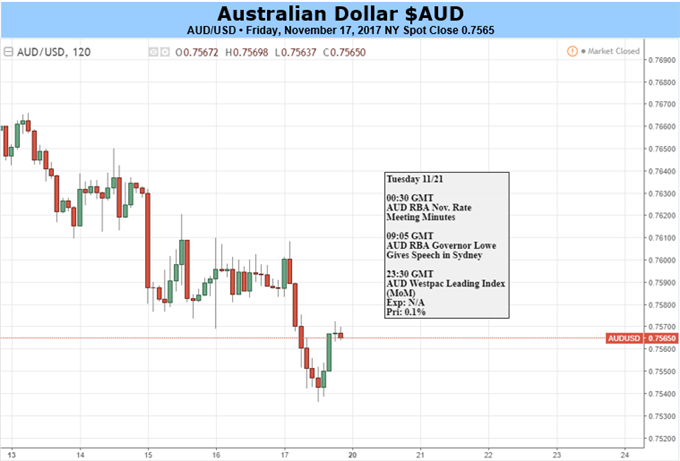
Fundamental Australian Dollar Forecast: Neutral
Last week’s economic snapshots provided market watchers with a little macrocosm of all that plagues Australian Dollar bulls.
The country’s official October employment data came in reasonably strongly. Yes, headline job creation missed forecasts by a wide margin but that was down to a fall in part-time positions. Full-time role numbers surged and the overall jobless rate hit a low not seen since early 2013. Overall employment has expanded by 336,000 for the year so far. That’s a very impressive gain in a country with a total employed workforce of just twelve million.
And yet the Australian Dollar continues to sag against its US cousin. For, while much of the Australian economy is doing either very or reasonably well, the parts held to be most closely connected to interest-rate policy are doing a little less so.
AUD/USD was hit last week by news that wage growth remains very pallid for all the labour market’s vigour. And the latest inflation data were relatively weak too. The Reserve Bank of Australia doesn’t help much. Its key Official Cash Rate remains stuck at a record 1.50% low and official pronouncements don’t suggest its going anywhere soon. Futures markets don’t foresee a move until well into 2018. The RBA has gone out of its way to saythat higher interest rates elsewhere do not necessarily force its own hand.
The RBA doesn’t want to see the Aussie get much higher, and it says so every chance it gets.
The upshot of all this for traders is that domestic economic data which don’t affect the inflation picture has little chance of moving the Aussie market much, be it strong or weak. RBA speakers, meanwhile, tend to depress the currency by publicly fretting its strength.













Leave A Comment